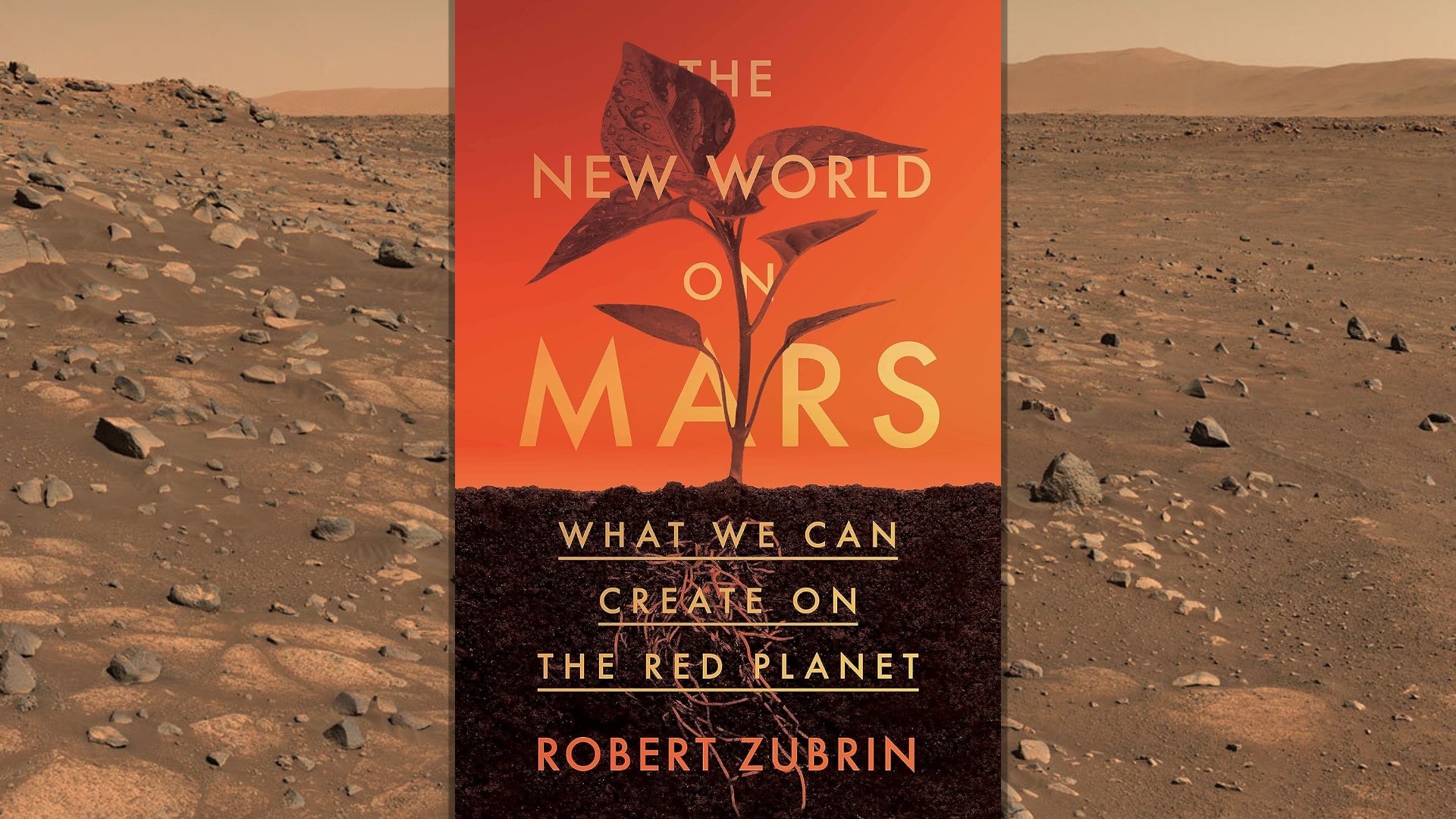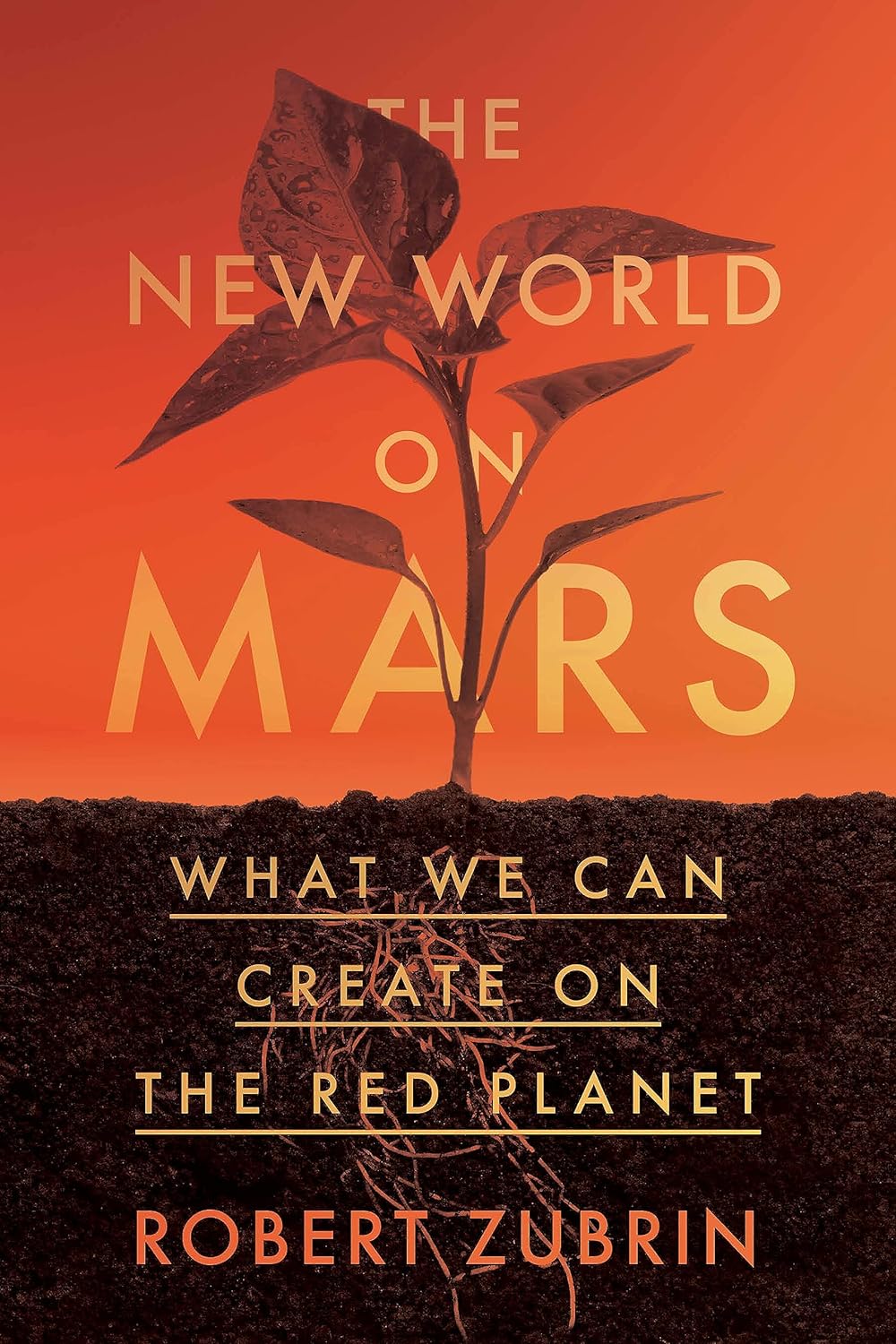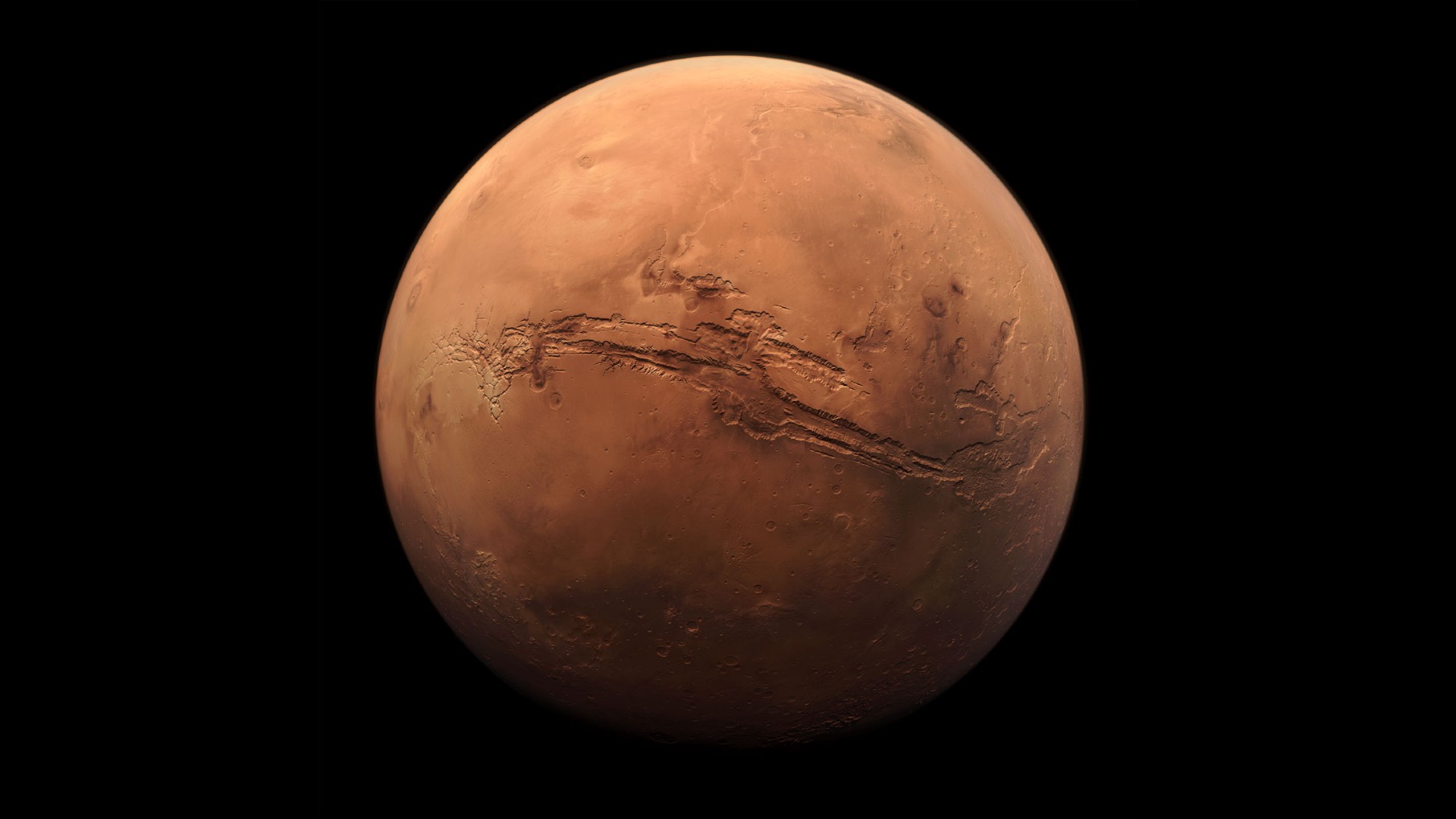'The New World on Mars' offers a Red Planet settlement guide (exclusive)

Breaking space news, the latest updates on rocket launches, skywatching events and more!
You are now subscribed
Your newsletter sign-up was successful
Want to add more newsletters?

Delivered daily
Daily Newsletter
Breaking space news, the latest updates on rocket launches, skywatching events and more!

Once a month
Watch This Space
Sign up to our monthly entertainment newsletter to keep up with all our coverage of the latest sci-fi and space movies, tv shows, games and books.

Once a week
Night Sky This Week
Discover this week's must-see night sky events, moon phases, and stunning astrophotos. Sign up for our skywatching newsletter and explore the universe with us!

Twice a month
Strange New Words
Space.com's Sci-Fi Reader's Club. Read a sci-fi short story every month and join a virtual community of fellow science fiction fans!
To say that Dr. Robert Zubrin, the esteemed Colorado-based aerospace engineer, author, lecturer and founding president of the Mars Society, has the Red Planet on his mind is a colossal understatement.
This pioneering educational voice and influential space authority has written many books on the timely topic of Mars and Mars settlement over the years as interest in humankind's role in its ultimate development has risen exponentially.
Now Zubrin adds to his impressive catalog of visionary volumes about our mysterious planetary neighbor with the recent release of "The New World on Mars" (Diversion Books, 2024), a fascinating and infinitely readable peek into Mars' inestimably rosy future.
Related: Mars Society proposes institute to develop tech needed for Red Planet settlement
Here's the official description:
"When Robert Zubrin published his classic book 'The Case for Mars' a quarter century ago, setting foot on the Red Planet seemed a fantasy. Today, manned exploration is certain, and as Zubrin affirms in 'The New World on Mars,' so too is colonization. From the astronautical engineer venerated by NASA and today's space entrepreneurs, here is what we will achieve on Mars and how.
"SpaceX, Blue Origin, and Virgin Galactic are building fleets of space vehicles to make interplanetary travel as affordable as Old-World passage to America. We will settle on Mars, and with our knowledge of the planet, analyzed in depth by Dr. Zubrin, we will utilize the resources and tackle the challenges that await us. What we will we build? Populous Martian city-states producing air, water, food, power, and more. Zubrin's Martian economy will pay for necessary imports and generate income from varied enterprises, such as real estate sales—homes that are airtight and protect against cosmic space radiation, with fish-farm aquariums positioned overhead, letting in sunlight and blocking cosmic rays while providing fascinating views.
Breaking space news, the latest updates on rocket launches, skywatching events and more!
"Zubrin even predicts the Red Planet customs, social relations, and government—of the people, by the people, for the people, with inalienable individual rights—that will overcome traditional forms of oppression to draw Earth immigrants. After all, Mars needs talent."
Always fully armed with provocative opinions, Dr. Zubrin spoke to us on this intriguing new guidebook to learn what keeps him invigorated concerning Mars colonization, and how that planet can be successfully transformed for human habitation and prosperity in the coming centuries.
Space.com: How does this project differ from your previous works on Mars?
Dr. Robert Zubrin: This book takes a longer view than "The Case for Mars," which is really mostly about how we can get humans to Mars and have an effective exploration program there.
"The New World On Mars" is much more focused on the future. This book says it's evident that people will be able to go to Mars in the near future. The question is what will we be able to create on Mars? What kinds of human societies are likely to emerge on Mars and what do they mean for the human future as a whole?
Space.com: One of the most interesting chapters deals with the psychological aspects of leaving Earth and establishing an identifiable Martian culture with its own customs, rites and rituals and the importance of that process. Can you elaborate on that subject more?
Zubrin: The Mars Society over the past couple years held two contests asking people to design a 1,000-person Mars colony and a one-million-person Mars city-state. And by design we meant not just the technology or the economy, but the social system, political system, what kind of sports are likely to be played, as well as the aesthetics.
Between the two contests, there were something like 300 entries. The ideas proposed spanned a huge range of political systems from socialist, to democratic and libertarian. Rather than attempt to choose my favorite system for a Martian utopia, I took the point of view that there will be many Martian cities founded by different people with very different ideas on what the ideal state should be, and it's going to be sorted out by natural selection.
Some of the answers I came up with I like a lot, like human liberty. But this is in contradiction to many visions of science fiction colonies that are totally controlled because no one would immigrate to one. The ones that will outgrow the others will clearly be the ones that are most attractive to immigrants. Freedom is a great attractor. North Korea does not have an illegal immigrant problem. Martian colonies will have to be highly inventive and invention only thrives under freedom. I believe a Mars colony will also require a great deal of social solidarity, so it will not be multi-cultural and will need to have a strong sense of community and common identity.
In my life I haven't had much use for organized sports, let alone organized religion. Yet these are things that help form common identity, and I think they'll be prominent in the successful Mars cities. They will also have to be aesthetically beautiful to attract immigrants, female immigrants in particular, because if you're going to have a population that grows on Mars, you're going to have to attract women to Mars.
The founders of America called it a noble experiment. Mars will be a place where there will be dozens of noble experiments, and that's where you'll get the answers.
Space.com: What keeps you energized and inspired to do your best work with the Mars Society, exploring new book projects, or planning the next lecture, science talk or convention appearance?
Zubrin: I always feel that I need a purpose. That I should be doing something that's going to do some good. What is going on in the world today where I can do some good? In addition to fighting for Mars, I've been writing a lot of articles calling for aid to the Ukraine.
And I think space is part of the fight for freedom too. By opening space we will prove that it's not true that there are limited resources, and therefore it's not true that there's a necessity for war, which means it's not true that there's a necessity for tyranny. Through my technical work and through my writing, I do whatever I can do.
"The New World on Mars" is available for purchase on Amazon.

Jeff Spry is an award-winning screenwriter and veteran freelance journalist covering TV, movies, video games, books, and comics. His work has appeared at SYFY Wire, Inverse, Collider, Bleeding Cool and elsewhere. Jeff lives in beautiful Bend, Oregon amid the ponderosa pines, classic muscle cars, a crypt of collector horror comics, and two loyal English Setters.



